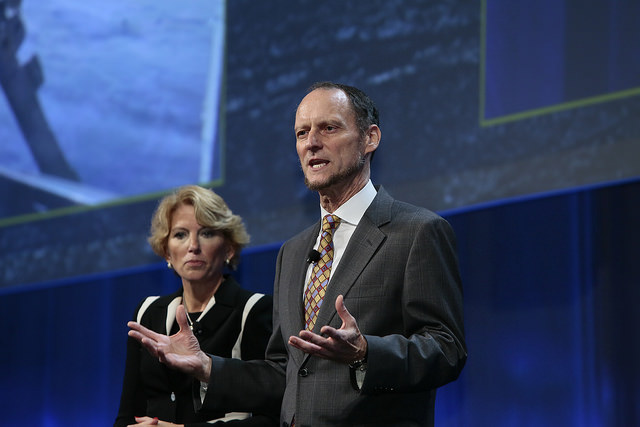Produce industry launches draft Ethical Charter on farm labor practices

The Produce Marketing Association (PMA) and United Fresh are seeking public feedback on their draft Ethical Charter on responsible labor practices, which aims to gain alignment across the sector and harmonize industry efforts.
A joint committee from both organizations has been working over the last year on the document, which outgoing PMA CEO Bryan Silbermann describes as the 'guiding principles and values'.
The committee has had numerous consultations with key industry actors from both the supply and purchasing sides, including major retailers and restaurant chains.
Discussions focused on common elements of current responsible labor practice schemes - like worker protections, occupational safety, and management systems - in order to codify an "acceptable set" for the industry.
"We would like this to become a global standard set of guiding principles. What we have done now is we have published it so we can get comments from people who have not been involved in the process so far," Silbermann told Fresh Fruit Portal.
"We realize that we will get positive comments and we will get negative comments. Negative from people who feel it doesn’t go far enough, and positive who feel that this kind of set of guiding principles could do a lot to eliminate duplication of efforts and confusion of the marketplace down the road."
He emphasized the draft's publication was just a "first step in a longer process", and that the committee was continuing to develop its action plan that will look at how the Ethical Charter could be implemented and how verification could be sought.
Public comments are being welcomed until Feb. 20, with a final version due in the second quarter of this year.
'Not something new'
Consumer demand to know more about the food they eat has been rising sharply over recent years, and a damning investigation into worker abuse on Mexican farms published by the LA Times in 2014 gained widespread attention.
Silbermann said the Ethical Charter's development was not just a response to that report but rather something that had been developing for a number of years, recalling the topic was discussed in a meeting with one of the major retailers in 2011.
"It’s not something new, but I would say that some of the recent instances have certainly highlighted the greater need for this," he said.
He also explained there was a desire on the supply side to have some level of standardization on the matter, amid actions by some retailers of their own accord to verify of socially responsible practices.
"So I think it’s a variety of factors. One, I think this is a social trend that’s been around for at least five or six years, two, I would say it has been highlighted by media reports over the last several years, and three, the action of some of the buyers that has all combined to generate a greater demand and a greater support for this kind of activity," he said.
Over the coming months, a key focus for the PMA and United Fresh will be on building industry participation through engaging stakeholders, getting organizations to sign on to using these standards, and creating a "method of committment" that companies can make publically.
Going beyond that, Silbermann said it would be important to establish an element of verification and create opportunities for harmonization with other schemes. Working involvement will also be an important aspect to consider, he added.
"I think it’s pretty clear to us that in every industry where you have responsible labor practices implemented in response to whatever the drivers have been, there has to be some element of validation and some element of involvement of workers in a way that they can provide feedback that’s positive," he said.
'This is something that’s here to stay'
Strong committment from both buyers and suppliers is also fundamental for the Ethical Charter to be a success, Silbermann explained.
"Change is going to be driven by the buy side of the industry acting in a coordinated way as much as we can possibly get it, and then living by the standards that they publicized they’re going to do. It's dandy for a company to say they believe in this kind of thing and that they're going to implement it in their buying practices, but then they really have to go out and do that," he said.
"And if suppliers are going to go out there and verify in whatever way required by the buyers that they are following the principles in the Ethical Charter, then I think it behoves the buyers to buy only from companies that follow the standards.
"It's critical to hear from supply side. 'We’ve got no problem' they say, 'but we want the folks on the buyer side to adhere to this when they actually make their buying decisions and not simply pay lip service to it'."
Asked whether it was a concern that some companies may demonstrate no desire in following the charter, Silbermann said there was a good chance those companies would be out of business in the near future.
"The strongest companies in the industry survive. It’s a very dynamic business, it always has been," he said.
"People who invest in better training for their people, or better seeds for their products or rootstock for their trees, or better technology to run their business or better marketing and sales efforts - they're the companies who become leaders down the road. People who put their head in the sand usually expose the most vulnerable part of their body, and a few years down the pike find they’re no longer in business.
"So I would say to anyone who thinks that this is just a passing fancy, they had better look at social trends within the population at large and realize that this is something that’s here to stay."












































